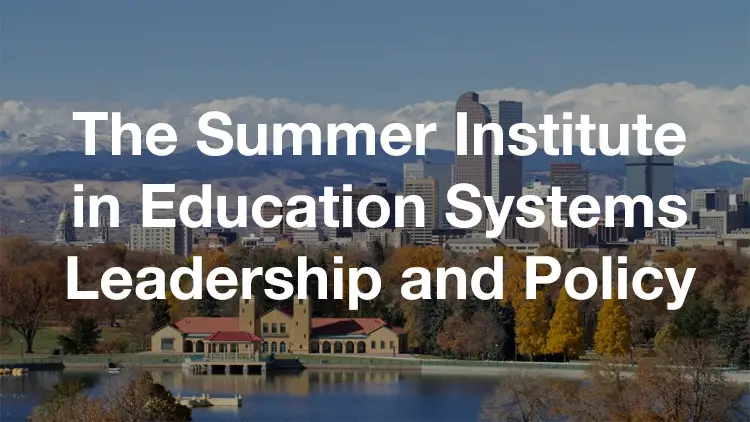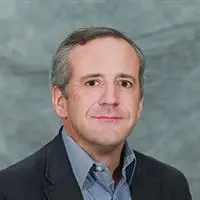For more than a year, the U.S. Secretary of Education and the president of the American Federation of Teachers have been engaged in a bitter dispute about the public and private purposes of education in a free society and the proper role of government in providing it for all children.
Reduced to soundbites, the debate is framed as an epic battle between a mythical monolithic “public school system” and a systemless market of individual consumerism. We must choose, these leaders tell us, either “neighborhood schools” or “school choice,” progress or stasis, stability or disruption, equity or excellence, improvement or innovation, the existing system or no system at all.
The problem with framing the debate this way is that it obscures all the ways that education systems are already transforming as part of a much broader shift happening all across the planet. Public and private institutions are recognizing that systems built for a different time do not meet the needs of an increasingly diverse and interdependent world. The age of top-down, centralized, and isolated service delivery—of any kind—is over. We now live in a networked society defined by open information, interconnectedness, adaptability, and decentralized authority and accountability. The future will belong to those who embrace this reality instead of fighting it.
By focusing on ideology over problem-solving, our education leaders are making it harder to adapt for the future, harder to solve endemic problems, and harder to seize new opportunities. Their zero-sum rhetoric fuels the passage of reactionary policies, masks ongoing inequities in existing systems, and encourages defensiveness, complacency, and carelessness. It creates conflict among people making genuine efforts to collaborate across sectors to expand quality and equity. It hardens opposing positions and hides common interests. And, worst of all, it distracts from our continued failure to provide quality educational opportunity to all children.
Instead of painting false choices, we need leaders who tell the truth and face the future bravely. Learning in the future will include more choice in where, how, and what to learn; more flexibility in how schools and systems of schools are funded, operated, and governed; more agency for students and educators; and more focus on demonstrable results. A growing number of communities are recognizing this shift and moving away from a centralized, top-down, “one-size-fits-all” approach to schooling to one designed to facilitate choice and access for students, empowerment and flexibility for educators, and transparency and accountability to the public. Some are implementing the portfolio strategy. Others are focused more cross-sector coordination and collaboration. These are different efforts in different contexts, but common among them—from Washington, D.C., to New Orleans to Indianapolis to Denver—is a recognition that it is better to be a master of change than a victim of it.
The disruption that educator empowerment and school choice create in systems designed for stability is real. Change is hard. It brings real risks but also new opportunities. For some ideologues, disruption is itself the goal. Others pretend that all would be well if only things could stay the same. But for children and families, and everyone who cares about whether all kids have access to a quality education, the question before us now is what comes next.
We can move beyond disruption to transformation, but we need a new kind of leadership to navigate the enormous opportunities and challenges ahead. We need leaders willing to stand up to those who insist on defending an outdated system and to those who are intent on blowing that system up. We need leaders who reimagine how education can be organized and delivered to promote choice, flexibility, accountability, and equity; leaders who embrace complexity, reject orthodoxy, and collaborate across boundaries; leaders with training in public leadership, politics, and policy who can help design, transition toward, and lead new systems built for innovation and results.
So where will we get these new systems leaders? Many are already doing this work in the growing number of communities across that country that have embraced the reality of change and also in the places that have not. But we need tens of thousands more.
According to a 2014 report by EdFuel, transforming education systems will need to fill over 30,000 systems-level leadership roles in the next decade alone. Leaders are needed to design the school enrollment and transportation systems of the future; to develop new models for sharing critical support staff like nurses and counselors across overlapping networks of schools, and new ways of using student and school data to promote public transparency and highlight successes and inequities. Just as we prepare leaders to tackle complex public problems in other sectors, we need to prepare a new generation of education systems leaders.
To help meet this growing need, the University of Colorado Denver School of Public Affairs is creating a new graduate program in education systems leadership and policy to develop current and aspiring leaders and entrepreneurs working in public and private sector organizations engaged in education systems transformation and redesign. We are launching the program this July with a week-long Summer Institute. The curriculum provides an in-depth introduction to education systems leadership, politics, and policy and offers participants an opportunity to explore the challenges and opportunities that come with redesigning how education is organized, governed, and delivered.
There are great risks and opportunities ahead, especially for the millions of students our current systems continue to fail. But the transformation has begun. Change is coming fast. Now, more than ever, we need a new generation of education systems leaders to forge the way.





